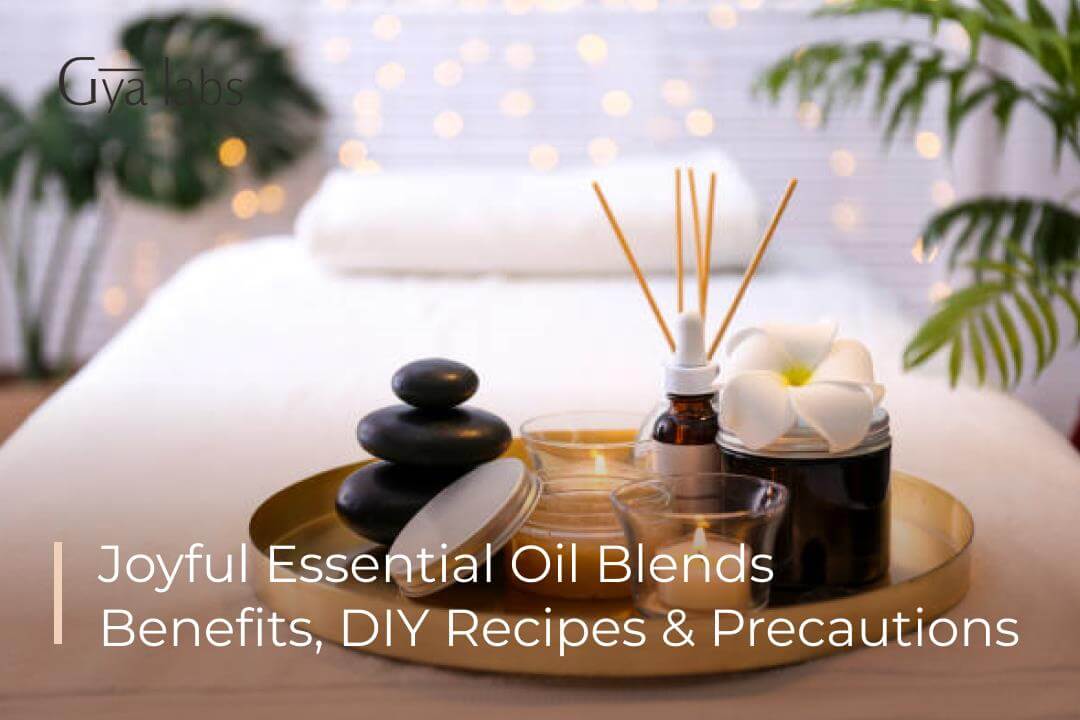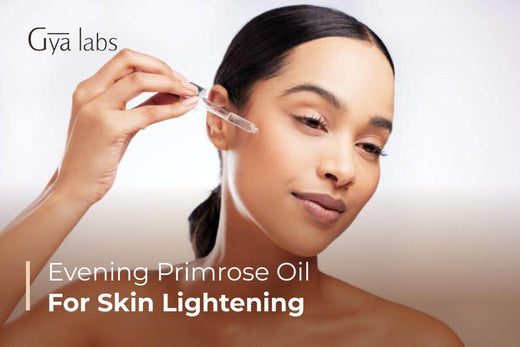In the realm of skin care, there is one such name that has been gaining attention and popularity. The allure of argan oil for hair is not just known for its natural benefits but also with its emerging trend of embracing natural solutions for different hair care needs and types of hair.
Argan oil is derived from kernels of the argan tree. It consists of nourishing fatty acids, potent antioxidants, and enriching vitamins. Argan oil emerges as a potent elixir that fulfills the needs of hair health. It provides deep moisturization, combating frizz, and amplifying fine hair without split ends. It effortlessly aligns itself with this ethos, embodying the essence of a wholesome, plant-based approach to hair care.
Gone are the days of harsh chemicals and artificial additives dominating our hair care routines. Argan oil effortlessly aligns itself by embodying the essence of a wholesome, plant-based approach to hair care. Its natural origins and inherent benefits make it a sought-after addition to the arsenal of those seeking both external allure and internal satisfaction.
Composition of Argan Oil
Argan oil holds a complex arrangement of compounds that contribute to its exceptional properties. It is a coveted ingredient in the realm of skin and hair care.
According to the Food Science and Nutrition magazine, Volume 54, Issue 11, argan oil is traditionally known for its cardioprotective properties. Argan hair oil may also help against skin infections and hair breakage.
Let us take a closer look at the composition & properties of argan oil. Also learn about the nutrients that are involved with its remarkable tapestry.
Fatty Acids
-
Fatty acids in argan oil are the building blocks of argan oil.
-
They contribute to its emollient and moisturizing attributes.
-
Argan oil is rich in Omega-6 & omega-9 fatty acids, such as linoleic and oleic acids.
-
These fatty acids have the ability to penetrate the hair shaft and fight against dry hair and damaged hair.
Antioxidants
-
Argan oil contains antioxidants, which act as potent defenders against free radicals and environmental aggressors that can lead to hair and scalp damage.
-
Tocopherols, a group of vitamin E compounds, stand out among these antioxidants. According to one's hair type, tocopherols safeguard your hair's vitality.
-
Phenolic compounds further bolster argan oil's antioxidant arsenal, helping to preserve the integrity of your hair strands and maintain their youthful appearance.
Vitamin E
-
Vitamin E is a cherished component of argan oil.
-
It is a multifaceted nutrient known for its nourishing and rejuvenating properties.
-
This vitamin plays a pivotal role in promoting blood circulation to the scalp, encouraging hair follicle health and keeping your hair manageable with anti-frizz.
Squalene and Sterols
-
Squalene is a naturally occurring hydrocarbon.
-
It is present in argan oil and contributes to its lightweight texture and rapid absorption.
-
It aids in maintaining the suppleness of your hair while imparting a natural, non-greasy sheen.
-
Sterols, plant-derived compounds, enhance the barrier function of your scalp, retaining moisture and preventing dehydration.
Benefits of Argan Oil for Hair
According to a report by Alpha Research & Development Ltd. and Shaath & Meadows Consultation, in 2012, argan oil carotenoids and phytosterols are also anti-inflammatory agents, with the carotenoids. Embracing the essence of argan oil in your hair care routine isn't just a trend, it's a strategic move towards unlocking a multitude of benefits that cater to your hair's well-being and radiance.
The following are the benefits and how to use argan oil for your hair:
1. Moisturization
Argan oil may help in the deep moisturization of hair and scalp. It stands as one of its most remarkable attributes. Argan oil infused with essential fatty acids penetrates the hair shaft, delivering hydration to the core.
By addressing dryness and promoting hydration, argan oil softens the hair and makes it frizz free and easy to manage.
2. Frizz Control
Unruly frizz can disrupt even the most polished look. Argan oil can be used as a natural frizz-fighting champion. Its nourishing properties help to smoothen the hair cuticles, reducing friction between strands and taming flyaway. As a result, your hair appears more polished and sleeker.
3. Enhanced Shine
Glossy hair is often the hallmark of vitality and health. Argan oil provides lightweight texture and natural emollient properties that contribute to a lustrous sheen that emanates health and vibrancy. Argan oil helps your hair to retain its original radiance and health.
4. Maintenance of Scalp Health
Healthy hair starts with a healthy scalp, and argan oil doesn't overlook this essential aspect. By massaging argan oil onto your scalp, it improves blood circulation, promoting the nourishment of hair follicles. Argan oil may help prevent hair damage, it also helps to moisturize your hair & promote the growth of strong, resilient hair.
5. Argan Oil for Scalp Health
The connection between argan oil and hair health isn't limited to surface benefits. By nourishing your scalp and enhancing your hair's overall health, argan oil takes a holistic approach that translates into not only cosmetic allure but also structural integrity.
Incorporating Argan Oil into Hair Care Routine
There are many ways to use argan oil for hair enhancement. By elevating your hair care regimen with the nurturing properties of argan oil is a delightful step toward achieving hair that radiates health and beauty. In this section, learn about how argan oil can be used for hair growth and help your hair shine.
1. How to Apply Argan Oil
Begin by warming a small amount of argan oil between your palms. Gently distribute the oil evenly across your hands to ensure a smooth application. If your hair tends to be greasy near the roots, avoid applying the oil there. Instead, focus on the lengths and ends where hydration is most needed. For a natural-looking finish, gently scrunch the oil-coated ends of your hair.
2. Frequency of Use
The frequency of applying argan oil varies based on your hair's needs and texture. Using argan oil 2-3 times a week can help maintain a healthy balance. If your hair leans toward dryness or requires extra care, consider applying it every other day. However, remember that moderation is key. Using too much oil too often can lead to overly greasy hair.
3. Complementary Hair Products
To enhance the benefits of argan oil, choose hair care products that align with its nourishing properties. Opt for sulfate-free shampoos and conditioners that gently cleanse while preserving your hair's natural oils. Look for leave-in conditioners, serums, or hair masks infused with argan oil for an added layer of hydration and protection. These products work in harmony with the oil, creating a comprehensive care routine.
4. Enhancing Your Hair Care Routine
Incorporating argan oil seamlessly into your daily hair care routine is all about making it a natural part of your ritual. Consider using it after your shower on damp hair, as it helps lock in moisture. If you're using heated styling tools, apply a small amount of argan oil beforehand to protect your hair from heat damage. And whenever you're in need of a quick touch-up throughout the day, a tiny drop of argan oil can work wonders in taming frizz and adding shine.
DIY Recipes: Argan Oil Hair Mask, Treatment, Serum & Rinse
Recipe #1 - Argan Oil Hair Conditioning Mask
Ingredients
-
2 tablespoons of argan oil
-
1 tablespoon of Greek yogurt
-
1 teaspoon of honey
-
1 tablespoon of castor oil
Instructions
-
In a bowl, mix argan oil, Greek yogurt, and honey until well blended.
-
Apply the mixture to damp hair, starting from the roots and work your way to the ends.
-
Leave the mask on your hair for 20-30 minutes.
-
Rinse your hair with lukewarm water, followed by shampoo & conditioner.
Recipe #2 - Argan Oil and Aloe Vera Scalp Treatment
Ingredients
-
1 tablespoon of argan oil
-
2 tablespoons of fresh aloe vera gel
-
3-4 drops of tea tree essential oil (optional)
Instructions
-
Combine argan oil and aloe vera gel in a bowl.
-
Add a few drops of tea tree essential oil for a soothing effect.
-
Gently massage the mixture into your scalp for 5-10 minutes.
-
Leave the treatment on for 30 minutes to an hour before washing your hair.
Recipe #3 - Argan Oil and Egg Protein Treatment
Ingredients
-
1 tablespoon of argan oil
-
1 egg (for medium-length hair; adjust for longer hair)
-
1 tablespoon of plain yogurt
-
1/2 tablespoon of jojoba oil
Instructions
-
Whisk the egg in a bowl and add argan oil and yogurt, mixing well.
-
Apply the mixture to clean, damp hair, focusing on the ends.
-
Leave the mask on for 45 minutes.
-
Rinse thoroughly with cool water, followed by shampoo and conditioner.
Recipe #4 - DIY Argan Oil Hair Serum
Ingredients
-
2 tablespoons of argan oil
-
5 drops of rosemary essential oil
-
5 drops of lavender essential oil
Instructions
-
Mix argan oil with rosemary and lavender essential oils in a small glass bottle.
-
Apply a few drops of serum, gently run your hands through your dry or slightly damp hair, focusing on the ends.
-
Use this serum as a finishing touch to add shine and manageability to your hair.
Recipe #5 - Argan Oil and Green Tea Rinse
Ingredients
-
1 tablespoon of argan oil
-
1 cup of brewed green tea (cooled)
Instructions
-
Brew a cup of green tea and let it cool to room temperature.
-
Mix argan oil with the cooled green tea in a bowl.
-
Gently massage your scalp and hair for a minute before rinsing with cold water.
Choosing the Right Argan Oil Products for Hair Growth
In this section, we'll provide you with expert guidance on how to choose high-quality argan oil products that deliver optimal results for your hair care needs.
1. Reading Labels for Transparency
A pivotal step in selecting the best argan oil hair products is reading and understanding product labels. Look for clear indications that the product contains natural argan oil. The label should prominently display "100% natural argan oil" or "Argania Spinosa Kernel Oil." Avoid products that list argan oil lower down the ingredient list, as this might indicate a lower concentration.
2. Checking for Purity
Impurities can dilute the benefits of natural argan oil. Opt for products that are unrefined and cold-pressed, as these methods retain the oil's natural properties.
3. Ingredient Analysis
Dive deeper into the ingredient list to ensure you're making a well-informed choice. A high-quality argan oil product should have minimal ingredients, with argan oil as the primary component. Natural preservatives like tocopherol (vitamin E) can be present to extend shelf life without compromising quality. Steer clear of products with a laundry list of unfamiliar chemicals.
4. Researching Brand Reputation
Conduct research on the brand's reputation and history. Established and reputable brands are more likely to prioritize quality and customer satisfaction. Read reviews from other users to gain insights into their experiences with the product.
5. Avoiding Harmful Additives
Avoid products that contain harmful additives such as parabens, sulfates, silicones, and synthetic fragrances. These additives can counteract the benefits of argan oil and may lead to adverse reactions.
Using Argan Oil for Hair: Precautions & Safety Guidelines
Here are some precautions and safety guidelines to keep in mind when incorporating argan oil into your hair care routine:
1. Patch Test
Before applying argan oil to your entire scalp or hair, conduct a patch test. Apply very little amount of diluted argan oil on the skin. Wait 24 hours to check for any allergic reactions or skin irritations. If you experience itching, or discomfort, discontinue use.
2. Dilution for Sensitive Skin
If you have sensitive skin or a history of skin allergies, consider diluting argan oil with a carrier oil (such as coconut oil) before applying it to your hair. This can help prevent potential reactions and make the application gentler on your skin.
3. Avoid Contact with Eyes
Argan oil should not come into contact with your eyes. If accidentally applied near the eye area, rinse thoroughly with water. If irritation persists, seek medical attention.
4. Proper Application
When applying argan oil to your hair, focus on the mid-lengths and ends rather than the scalp, especially if you have an oily scalp. Applying argan oil to the scalp excessively can make your hair appear greasy. Argan oil directly can be applied to wet hair.
5. Moderation is Key
Using too much argan oil can weigh down your hair and make it appear greasy. Start with a small amount & then adjust as required based on your hair's texture and length.
6. Check for Allergies
If you have a nut allergy, consult with a healthcare professional before using argan oil, as it is derived from the nuts of the argan tree.
7. Quality Matters
Choose high-quality, natural, and cold-pressed argan oil. Poor-quality oils may contain additives or be diluted, compromising their effectiveness and safety.
8. Store Properly
Argan oil should be stored in a cool, dark place to prevent oxidation and maintain its quality. Exposure to sunlight and heat can degrade the oil.
9. Use as Directed
Follow the recommended usage instructions on the product label or as advised by a healthcare professional or hairstylist.
10. Consult a Professional
If you have existing scalp conditions, allergies, or concerns, consult a dermatologist or healthcare provider before incorporating argan oil into your hair care routine.
11. Pregnancy and Nursing
If you are pregnant or nursing, consult your healthcare provider before using argan oil on your hair or skin.
Conclusion
From quenching dryness to adding shine, argan oil delivers remarkable results. But remember, the key is in using it wisely. Read labels, ensure its purity, and follow safety guidelines. This ensures not only beauty but also a worry-free journey.
As you invite argan oil into your hair care routine, remember that your hair deserves the best. It deserves the luxury of this natural elixir. Let argan oil be your partner in self-care and authentic beauty. Your hair will radiate health, and you'll radiate confidence.















